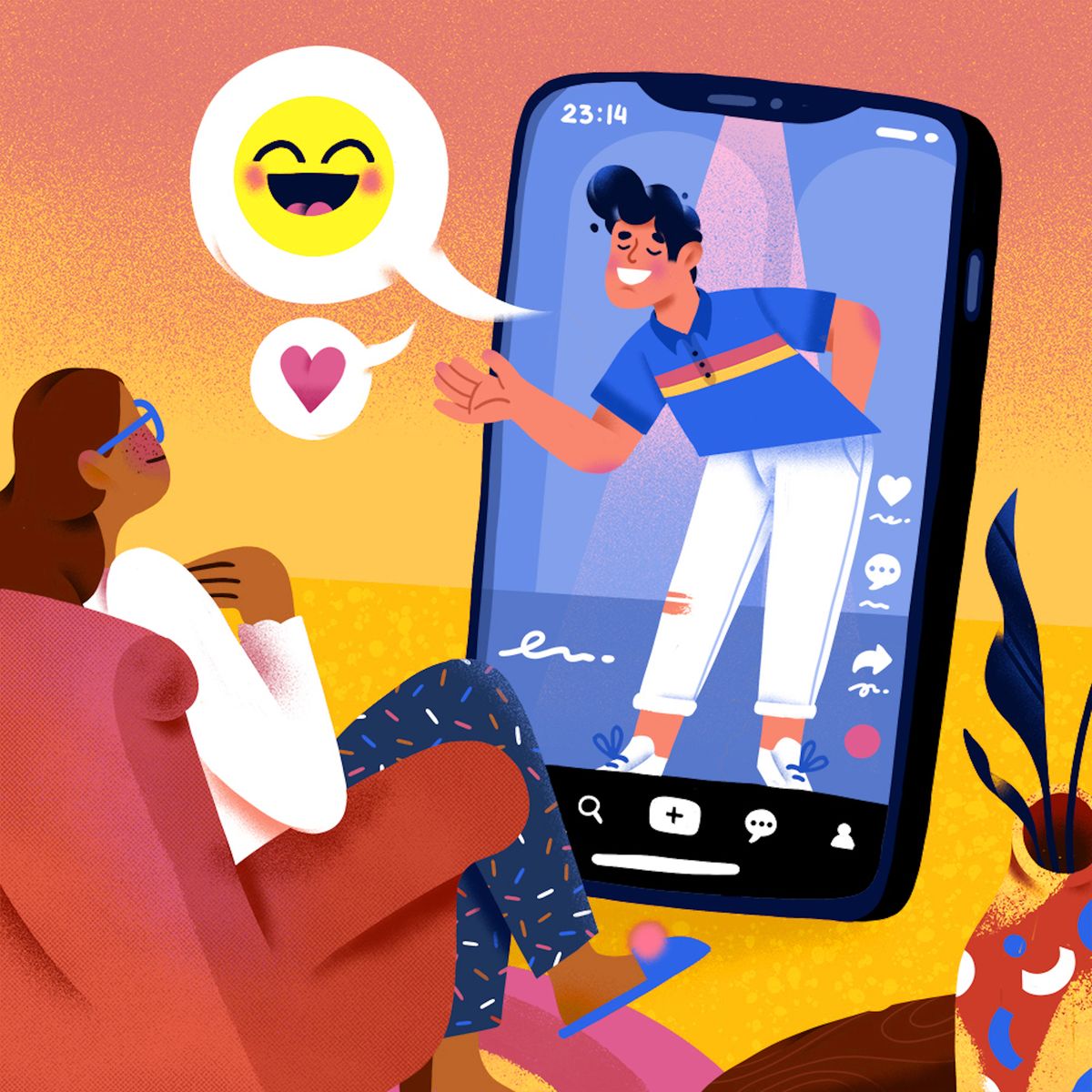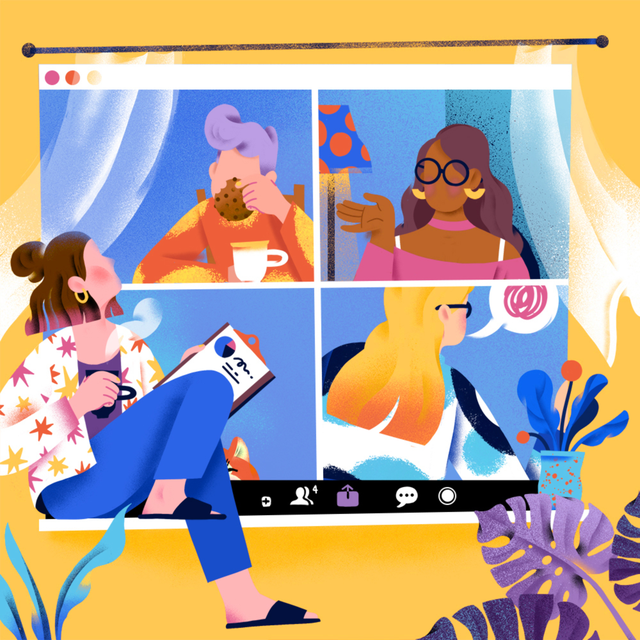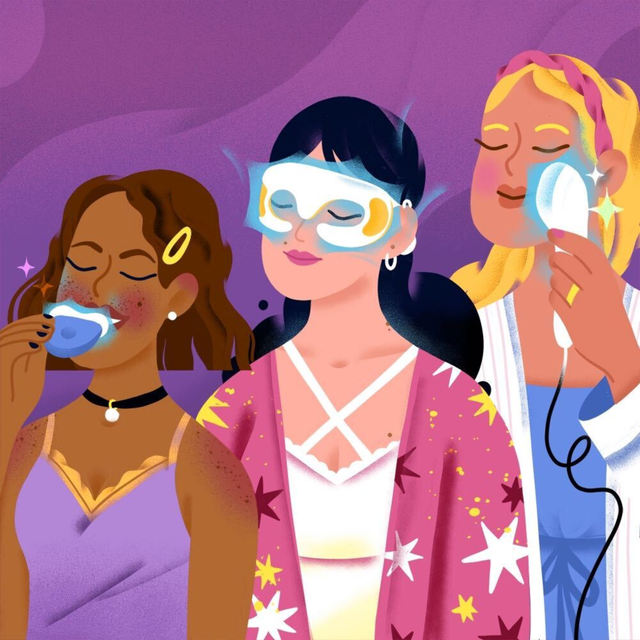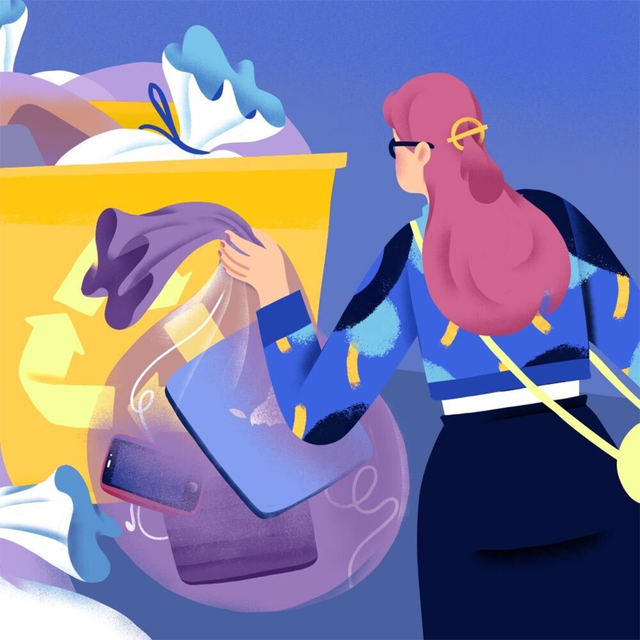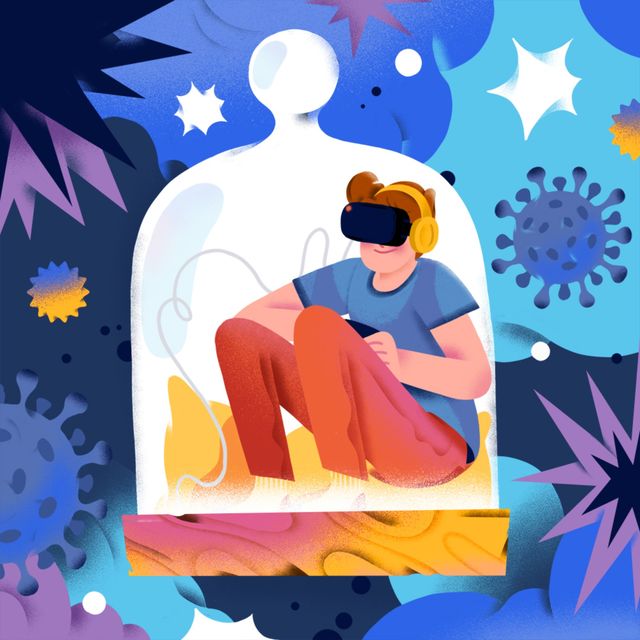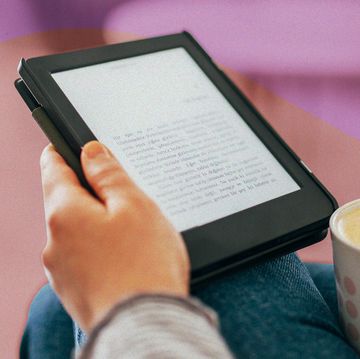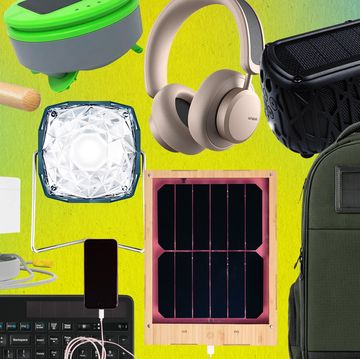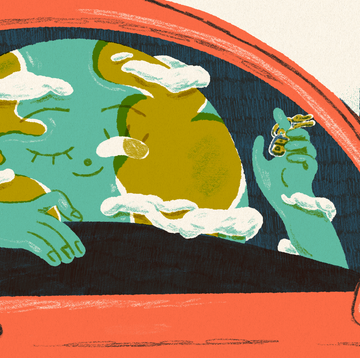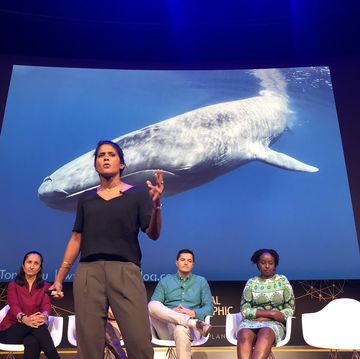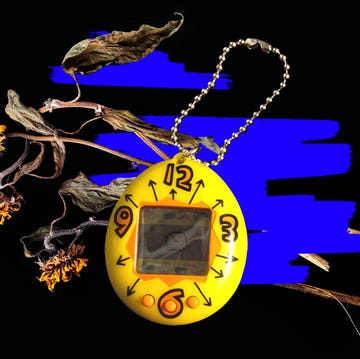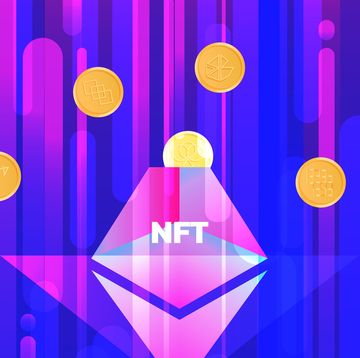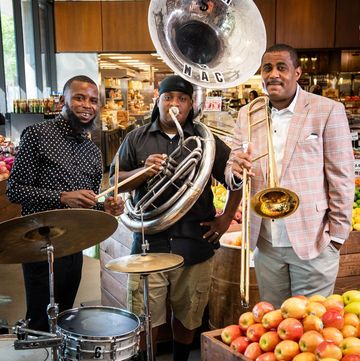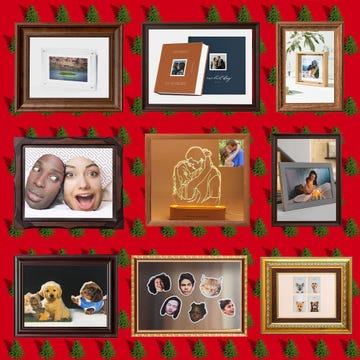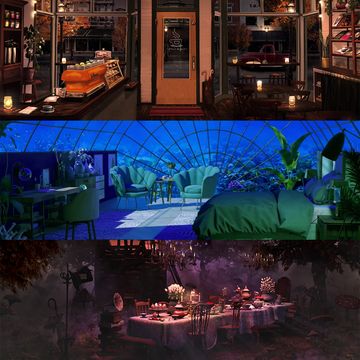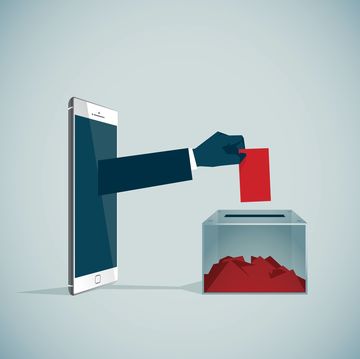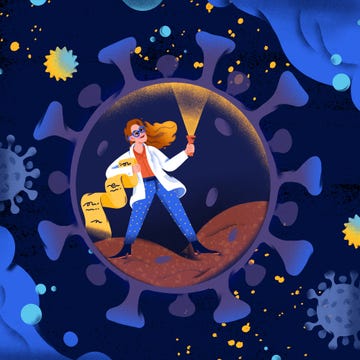When the U.S. screeched to a halt in March 2020 as a result of the pandemic, technology spared the world from a complete and total shutdown. From Zoom meetings to e-commerce to VR concerts, technology kept us connected and kept businesses running. We could continue taking workout classes via Instagram Live and Zoom, seeing our doctors face to face through video calls, and even hanging out together in virtual chat rooms. For those of us who live alone, it spared us from complete aloneness.
Given the reach technology has in every facet of our lives, and how central it’s been to our survival during Covid-19, Shondaland wanted to explore where tech is today, how we relate to it, where it’s headed, and the ways it will reshape our lives in the near future.
You know what's funny? These days … not much. Stress has become the de-facto state as Americans navigate an unprecedented pandemic coupled with an overdue racial reckoning, political instability, and daily weather-related natural disasters. Our social media feeds have taken an endless detour through the never-ending nightmare that is 2020. It's enough to make even the steadiest among us consider throwing our smart phones out the nearest window as the steady stream of bad-news alerts flood our senses.
Americans are looking for something. If not a silver lining, then at least a sliver of hope. Only 14 percent of people report feeling very happy and — with fewer than half of Americans reporting they will attend concerts, movies, amusement parks, sporting events, or theater performances once a coronavirus vaccine is available — our need for escapism is even greater than ever.
Perhaps it's no surprise, then, that one of the biggest new stars to emerge from our pandemic times has been a TikTok comedian.
Sarah Cooper parlayed her lip-synced Trump videos — which consisted of mocking snippets of the president's press conferences and speeches — into a massive online following. Seemingly overnight, Cooper became a favorite on the talk show circuit and recently scored a deal with Netflix for a forthcoming comedy special. During an abundantly serious era, Cooper made a name for herself by capitalizing on the absurdity of our commander-in-chief in perhaps the most 2020 way possible – sub-60-second videos created by and starring a single individual filmed in her own home.
Technology: A Shondaland Series
For comedians on TikTok, there's never been a better time to shine. With a captive audience of more than 100 million users in the U.S. and 800 million users worldwide, the platform has been an overnight tech success story, becoming the first app to cross the 2 billion download threshold since 2014. It's appeal to younger people is undeniable — 69 percent of users are between the ages of 13 and 24. Clearly, people, especially young people, are looking for brief moments of levity on a daily basis.
"TikTok has hit this sweet spot of 15-second videos, which is pretty much the ADD turning point. Any longer than 15 seconds and you're gonna click away from it," says comedian Brittany Broski, better known as "Kombucha Girl" after a video of her tasting Kombucha for the first time became one of TikTok's Top 10 viral videos of 2019. "If you're seeking long-form content, you go to Netflix."
Brevity isn't the only selling point. It's also one of the few social media spaces that doesn't necessarily reward perfection.
"It's a very creative and welcoming space where anybody can feel comfortable creating anything without feeling like they have to be perfect," says comedian James Henry, who has amassed more than three million followers. "I think that's one thing it has over every other platform. It's the one path where I really see people being themselves."
Now, more than ever, authenticity is extremely appealing to consumers when choosing which celebrities and brands to follow. TikTok comedians are stepping up to fill the void.
"There's more pressure now to make sure I show up for my audience, because I feel like now more than ever, we need to laugh," says Andrea Okeke, better known to viewers as Drea Knowsbest. "It's important to keep on having fun as I'm creating for my fans so they can escape. They can come to my page and still laugh when they need to get serotonin."
How to be funny in a pandemic
Being funny is hard. Being funny when the entire world is on edge is even harder. Potential landmines exist beneath every joke, which requires extreme caution for TikTok comedians prior to uploading new videos.
"I think it's got a lot of layers to it because it's not just coronavirus, it's the world crumbling in front of us," says Broski. "I have found it especially challenging to create sensitive, funny content, especially surrounding Black Lives Matter, because as someone with a checkmark and as someone with a lot of eyes on me, you want to be a voice for not only your generation, but also for what's right."
Broski says the challenge is to strike the right balance between comedy, activism, and reverence.
"It's a weird balance trying to find when it's appropriate to be funny and post harmless content that just shows off your personality or just what you're thinking in the moment, versus when it's time to activate and when it's time to call your audience to action."
The virus itself also has created logistical hurdles for Okeke, who attracts nearly five million followers. She believes no matter what's happening in the world, it's important to never stop creating.
"I like making sketches and I like having people play different characters in the sketch," she says. "So, it involves a lot of collaboration, but because of the pandemic obviously, I couldn't collaborate with people easily." Instead, she included her parents in her videos for the first time. Okeke, who often impersonates her Nigerian mother, says that fans were receptive to the previously unseen glimpse into her family life as well as the return of her one-woman videos that originally stood out from the TikTok crowd.
Henry, a frequent collaborator of Okeke, had a similar experience.
"When I started out, I did everything by myself," he says. "I played every character that I created. When coronavirus hit, it took away the luxury of being able to have all these friends who are actors in my videos. I had to go back to being the one man show, which was so hard, but I made it through."
Henry's main focus has been to make sure his viewers have a place where they can laugh.
"I've gotten a lot of DMs and messages saying that even after their worst day possible, my fans can always come to my page and laugh at something, and it kind of takes them out of their reality of whatever is going on," says Henry. “I felt a responsibility to keep going and keep posting stuff with as light of humor as possible. Away from the virus and away from politics."
For Broski, she says that feedback from fans has always helped her dictate what works and what doesn't.
"I get a lot of constructive criticism, if I ever do mess up, in my DMs just like, 'Hey, Brittany, I really think you should delete this. Love you, girl!' And I'm like, OK, great, that's great. Video's gone, you know what I mean? You never mean to offend, but when a video does, what we're learning is that the followers and the fans, they don't want an explanation, they don't want you to talk yourself out of it, they want an apology, they want accountability, and they want you to move on,” she says.
What it takes to be funny in 15 seconds
TikTok doesn't lend itself to the traditional joke-telling format. There's simply no time for setup, which means comedians have to focus on getting the laugh as quickly as possible.
"It's so weird watching a movie with my dad now, because all of these movies from the 80s and 90s, and even stand-up comedy sets. It's so clearly written – here is the joke, here's the punchline, laugh, next joke — that is so not the format anymore," Broski says. "In fact, we make fun of it. Now it's just say something random and then at the end like do a dance, or at the end make a noise, make a fart noise. That is what makes people laugh. I can't explain it, I don't know why. It's funny. It just is."
Broski says while it's easy to overthink what to post and when to post it, at the end of the day, her fans dictate what's funny and what isn't.
"You just really have to listen to the people that follow you because they got you to where you are," she says.
With so many TikTok users posting content, making well-constructed, thoughtful comedy helps Okeke stand out.
"What I love about my content is that I try to keep it quality," says Okeke. "Don't get me wrong, there's always those in-the-moment-type videos that are silly and goofy, and everything isn't always going to be 100 percent quality, because I don't wanna put that kind of pressure on myself. But I love that when I'm ready to put that good quality content out, it's a good piece of work. It's thought out, it's filmed right. I love that feeling when my audience is like, 'Hey, this was good!' They know that I deliver that good, good stuff."
Henry says being funny isn't easy. Fifteen second videos can take hours to conceive, write, execute, and edit. The upside, he says, is that TikTok allows users to share their unique sense of humor with the world by giving comedians full creative control.
"I thought everybody was funny until somebody told me that comedy is one of the hardest things that people do," he says. "I just thought it was a natural thing that came out of all of us." Not everyone has experienced the highs of Sarah Cooper, but TikTok opens doors for comedians that otherwise might not get a foot in the door.”
And it’s paying off in more than just views. "I've been able to land commercial and film, and TV roles, and all have all been from my work on TikTok," Henry adds.
The end of an app era?
Uncertainty surrounds the future of TikTok in the U.S. After months of threats, Donald Trump issued an executive order giving the app's parent company, ByteDance, 90 days to sell, spin-off the app with new security measures, or be locked out of the American market altogether. While 64 percent of active users in the U.S. oppose the order, 57 percent of Americans support it.
From a creative standpoint, Okeke says the loss of TikTok would be far more devastating than losing a major distribution channel.
"I was talking to my friend today and I was telling her the reason why people are gonna miss TikTok a lot — if it goes away — is that it's not just about the video. It goes beyond this content. There's a family and community that we have on the app, 'cause there's so many different niche communities. If we lose the app, I think the creators and their fans are gonna feel like they're losing a part of their family. Like they're losing a family member."
Broski agrees.
“It's such a democratic app," she says. "A lot of people don't understand how Twitter or Instagram or even the YouTube algorithms work. With TikTok, there's really nothing to figure out. It's not the app pushing videos, it's not the app pulling puppet strings behind the scenes. If a video is funny, if a video is entertaining, if a video is groundbreaking, it will be on the 'For You' page because people make it that way."
Because TikTok popularity comes from sharing videos, engaging with the content increases its reach, and Broski believes that power is what's behind the threat to shut it down.
In June, TikTok users banded together to flood President Trump’s ticketing system for his first political rally of the COVID-19 era in Tulsa, Oklahoma. The 19,000-capacity venue, which was forecasted to be jam-packed, was instead attended by 6,200 Trump supporters. TikTok organizers utilized many of the same tactics in an attempt to achieve the same result at a July rally in Portsmouth, New Hampshire. That rally was first postponed due to a tropical storm and then, ultimately, canceled due to coronavirus.
With the clock ticking on the app's future in the U.S., there's one thing all of the comedians agreed on. The human need for humor will persist, and as long as there's a free and open internet, comedians will find a way to bring laughter into our lives, 15 seconds at a time.
"It's the people's app," Broski says. "That's why it's so powerful and that's why I feel like politically, a lot of people have a problem with it. Because it's Gen Z activating, and that scares people."
Matthew M. F. Miller is a freelance writer and author of Dad’s Guide to Pregnancy For Dummies. He is currently writing a weight loss book that tells the stories of people who have lost half their body weight and kept it off for more than 10 years.
Get Shondaland directly in your inbox: SUBSCRIBE TODAY
